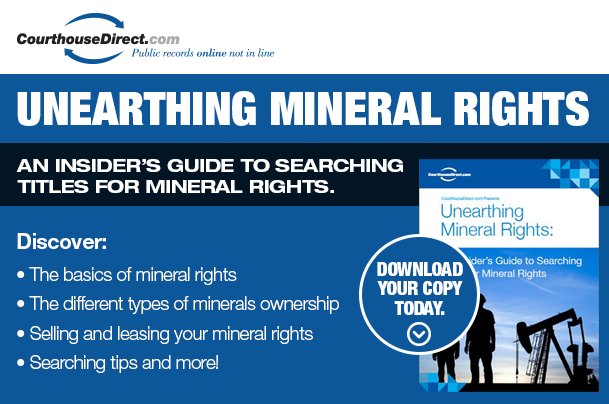 Title opinions are essential to the practice of residential and commercial real estate law. Among other things, they play a crucial role in the smooth transfer of property and the orderly assignation of mineral rights. Unfortunately, inexperienced energy industry landmen, private landowners and interested buyers often fail to secure adequate title opinions before engaging in such transactions. While it's usually necessary to retain an experienced legal professional to draft a title opinion, it's also prudent to have a frame of reference during the process.
Title opinions are essential to the practice of residential and commercial real estate law. Among other things, they play a crucial role in the smooth transfer of property and the orderly assignation of mineral rights. Unfortunately, inexperienced energy industry landmen, private landowners and interested buyers often fail to secure adequate title opinions before engaging in such transactions. While it's usually necessary to retain an experienced legal professional to draft a title opinion, it's also prudent to have a frame of reference during the process.
Common Types of Title Opinions
Title opinions come in many different forms. In regions that lack significant mineral resources, title opinions may gloss over or completely ignore mineral rights issues. In energy-rich regions, mineral issues can often completely change the complexion of these documents. While all title opinions exist to identify potential "defects," liens or chain-of-ownership issues, each form has its own particular attributes and peculiarities. The most common types of title opinions include:
- Acquisition opinions: Mineral extraction companies commission acquisition opinions to confirm that the seller of a mineral-rich property owns it outright.
- Lender opinions: These title opinions are prepared on behalf of a real estate transaction's financier and exist to confirm the mineral content of the property in question.
- Drilling/original opinions: Drilling or "original" opinions are prepared before the initiation of the mineral extraction process and ensure that each partial owner of a given property owns his or her parcel outright.
- Division opinions: These opinions build on the "original" opinion and seek to codify the distribution of proceeds from the sale of mineral resources in the event that such resources are discovered on the property in question.
Basic Structure and Common Components
Most title opinions adhere to a standardized format that varies in accordance with their audiences and findings. For starters, the opinion must be addressed to a specific party and contain a provision that limits the ways in which it can be used. This statement should explicitly limit its availability to the parties that have been named within. A title opinion must also contain a detailed description of the property to which it pertains. This description should follow the generally accepted format for the region in which the property lies. Finally, the body of the opinion must list each potential lien, defect, objection and generalized issue that pertains to the property. An opinion isn't technically complete unless it lists all such issues.
A Closer Look at Liens and Defects
Experienced title examiners know to look for several different kinds of issues that could affect a property's chain of ownership or salable value. Most title opinions "itemize" these issues by grouping them into commonly accepted categories. These include:
- Outstanding mortgage obligations and home equity loans
- Restrictive covenants that affect the use or sale of the property in question
- Liens for past-due taxes and other public obligations
- Bankruptcies, pending lawsuits, recent part-owner deaths, environmental liens, secondary financial interests and other miscellaneous issues
Organization and Examination Protocols
Like any other legal document that may be used as a point of reference in perpetuity, title opinions must be well-organized and thorough. Although it might seem redundant, title opinion writers must include every single lien, obligation or miscellaneous issue that could affect the disposal and exploitation of the property in question. They must also ensure that the description of the property isn't subject to challenges. Most importantly, the opinion must be directly addressed to the appropriate parties and leave no ambiguity as to the property's past and future chain of ownership.
Final Thoughts
Although title opinions are generally the province of land lawyers and other professionals, laypeople can save time, money and stress by gaining a greater understanding of the title opinion preparation process. As common fixtures in the world of real estate law, title opinions are too important to ignore.
* Image courtesy of stock.xchng





















